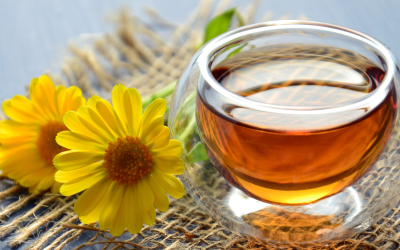Your Well-Being
The Power of Gratitude

“It is not joy that makes us grateful; it is gratitude that makes us joyful.” – Soren Kierkegaard
Gratitude is a simple practice that enriches the human experience. In our modern world, we take a lot for granted, including things – like good health, food, and shelter – that we used to count as blessings. Yet, research shows that those of us who are grateful experience lasting positive impacts on our social, emotional, psychological, and even physical well-being. In other words, cultivating an ‘attitude of gratitude’ is good for our health.
The Oxford dictionary defines gratitude as “the quality of being thankful”, but true gratitude is a lot more than this. It’s about acknowledging all the goodness in your life: appreciating the good things that happen, as well as the simple everyday experiences that often go unnoticed. More than just positive thinking, gratitude is a feeling of contentment that comes from finding the gifts in your life, just as it is. The more we live from a gratitude mindset, the more our view of our life changes for the better.
Have you ever noticed how people tend to complain about the little things that inconvenience them, rather than appreciating what they have? How they pay far more attention to their ‘headwinds’ than their ‘tailwinds’? Interestingly, this as an adaptive evolutionary function. The human brain has an in-built negativity bias, which leads us to notice the negative (such as an insult) more than the positive (such as a compliment). However, the brain is plastic, and a gratitude practice can help to shift that bias by bringing more cognitive attention to the positive aspects of life. And the more we focus on the positive, the more positive we feel.
Gratitude is not pretending that nothing is wrong. Rather, it is about putting your focus on what you appreciate despite what is wrong – focusing on what we have rather than what we don’t. But our well-being is directly affected by what we pay attention to. So, when we focus on what we’re grateful for it improves our sense of well-being, which in turn helps us to cope with our challenges better. Think of it like a psychological booster. Even when things feel out of control, gratitude offers us a way to control our thoughts, to change how we’re thinking about our situation.
Counting our blessings is not a response but a choice, and a very worthwhile one. The research shows that there is a direct correlation between gratitude and an increased sense of happiness. Practising gratitude increases feel-good chemicals in the brain, specifically dopamine, serotonin, and oxytocin. It also helps regulate the body’s stress response. Further, paying attention to the positives in our life trains our brain to notice the positives, so by doing the practice, we can shift our brains to experience more positive thinking. Other benefits of a gratitude mindset include better sleep, improved immune response, reduced pain, fewer headaches, increased vagal tone (soothes the nervous system), and improved relationships.
In a world where it seems to be the norm to always want more, being grateful for your life, just as it is, is a simple yet powerful practice that can improve your mood, reshape your brain, and transform your life. So, count your blessings, want what you have, acknowledge the abundance in your life, and make gratitude a part of your daily life, for it may just be the key to a more joyful life. And the more you practise, the more you will find to be grateful for.
Some ideas to get you started with your gratitude practice:
1. Express gratitude and appreciation to others. Verbally, in writing, or even mentally. We tend to complain a lot more than we give thanks. It feels good to do the latter. 2. If you have children, make some time daily to share a few things you are grateful for with each other. In our house we call it “our gratefuls”, and we mostly do it before my son goes to sleep, ending the day on a positive note. 3. Each day, sit down and think of a few things you are grateful for. You could do this at any time of day, though waking up and going to sleep with thoughts of gratitude can be a positive way to start and end the day. 4. Keep a gratitude journal where you jot down a few things you are grateful for daily or weekly. Looking back at written notes of gratitude can feel very uplifting. 5. Appreciate the small stuff. Take moments throughout your day to pause and acknowledge the goodness in your life.
Join the Mindful Mornings Challenge
Are you ready to invite a little more presence, calm, and connection into even your busiest days? Download your free PDF challenge guide.
More Articles to Explore…
Sense Walk
Whether you’re walking through the woods or your garden, sense walks are a simple way of bringing a little mindfulness to your day.
The Power of Walking
When it comes to self-care, never underestimate the power of walking to improve your physical and mental well-being.
The Power of Doing Just One Thing
Your Well-BeingThe Power of Just One Thing In the fable about the Tortoise and...
Listen to Your Tea
The simple task of preparing and drinking a cup of tea (or coffee) is the perfect opportunity to practice mindfulness.




